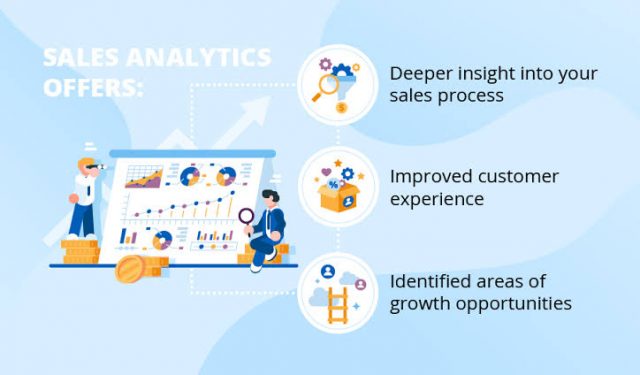Most small businesses might overlook the importance of analyzing sales data. However, the information you can glean from it can improve your business operations and help your business grow.
As a small business owner, cash flow may be your top priority, however, analyzing sales data is equally important. For instance, without looking at your sales, you won’t be able to remove a product, spot a trend, or increase inventory to meet demands.
Therefore, in today’s world, analyzing sales data has become increasingly critical especially with sales coming from various channels.
Why Should You Analyze Sales Data?

Small businesses capture lots of data every day. Basically, a treasure trove of information (that can influence all sorts of business decisions) is at your fingertips every time a customer makes a purchase from you. Hence, analyzing sales data is important for a bevy of reasons:
It Influence Sales and Marketing Decisions
Nowadays, selling your product online has become the new normal. Most businesses are making use of general marketplaces like Amazon or using their own websites to sell their products.
This is why tracking sales analytics is essential. You won’t be able to identify the areas to concentrate on if you don’t analyze your sales data.
It Increases Cash Flow

The lifeblood of any business is CASH, and sales are the best way to generate cash in a business. Thus, tracking your sales will provide a better understanding of your current sales performance and its future predictions.
It Helps You Focus

Small business owners find it difficult to find new customers every day because they are always crunched for time. Thus, it’s even more difficult for them to find time to pore over sales data.
Nevertheless, analyzing sales can help a business narrow its focus. For example, you could be selling directly to consumers and distributors. After tracking your sales analytics, you realized that your business would be more successful if it sold exclusively to distributors only.
What Are The Type of Sales Analytics to Monitor?
Highlighted below are the types of sales analytics you can track for your business:
- Product performance: Using sales data to analyze product performance helps you fathom your best and worst selling products. Also, this metric tells you if you should focus on one product over another.
- Sales growth: This metric shows your business performance compared to previous periods such as monthly, quarterly, bi-annually, or annually. In other words, it provides information on how your sales have grown over a given period.
- Lead conversion rate: Customer acquisition costs can wipe out your profits, especially if it takes too long to turn a potential customer into a customer. Thus, you can track your rates of converting leads through your sales data.
- Sell-through rate: When managing inventory, this data set is arguably the easiest to use. It tells you the amount of inventory you have on hand compared to the ones you’ve sold in a month.
Conclusion
By analyzing sales data, you can protect your cash flow; make informed decisions about product, marketing, and awareness. Additionally, you know when it’s time to pivot and how to improve operations in general.





